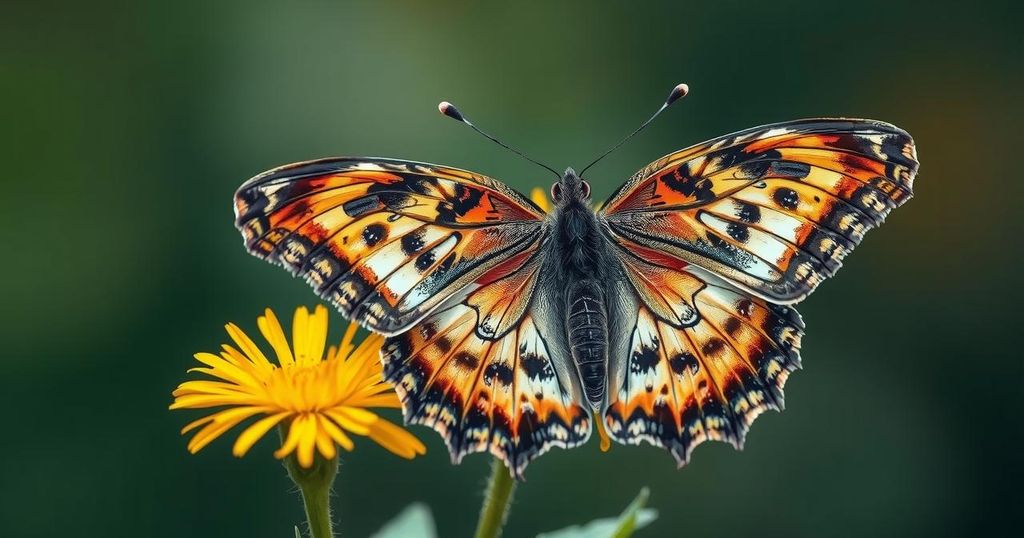The Impact of Climate Change on Butterfly Populations in Greece

Climate change is severely affecting butterfly populations in Greece, where warmer temperatures lead to reduced food availability and shorter flowering periods. Experts warn that this may also result in smaller butterfly sizes and force them to migrate to areas with less food. The increasing frequency of wildfires exacerbates the situation by destroying essential plants. The MEIOSIS research project aims to quantify these changes and understand their long-term implications.
In Greece, a sanctuary of resplendent butterflies is currently threatened by the profound impacts of climate change. Within a controlled environment at a zoo near Athens, vibrant butterflies indulge in the nectar of orange slices, yet outside this haven, their native habitat is increasingly inhospitable due to rising temperatures. Greece, which boasts a rich diversity of approximately 237 butterfly species, witnesses a decrease in food availability and a shortening of flowering seasons. Alarmingly, experts have observed that these climatic changes may also lead to a reduction in butterfly size. This troubling trend is not isolated to Greece alone; it resonates across the globe, affecting butterfly populations in regions such as Mexico and Britain, where notable declines have been reported. Konstantinos Anagnostellis, an agronomist involved in the MEIOSIS research project at the University of Ioannina, asserts, “Climate change is impacting butterflies … that rely on temperature to perform essential activities such as mating, reproduction, growth, and feeding.” This extensive project aims to track the body weights of over 50,000 butterfly specimens collected over the past century to analyze how climate variations influence their body size. As temperatures rise, butterflies are compelled to migrate to cooler locations that may offer less nourishment. Additionally, the escalation of wildfires in Greece significantly diminishes the availability of food resources, as crucial grasslands are devastated. Anagnostellis cautions, “If these plants are burned, there is a risk of direct mortality for the larvae, and we may not have adult butterflies to reproduce, forcing them to migrate to other areas.”
Climate change poses a significant threat to biodiversity, and butterflies serve as a poignant example of this phenomenon. In Greece, with its climate vulnerable to warming, the ecological balance supporting butterfly populations is increasingly precarious. Rising temperatures disrupt essential biological processes for butterflies, such as feeding, growth, mating, and reproduction. Notably, this situation not only threatens local species but also reflects a global trend that underscores the urgency of addressing climate-related challenges in ecosystems across the world. Research initiatives, like the MEIOSIS project, are crucial for understanding these impacts and informing conservation efforts.
The plight of Greece’s butterflies epitomizes the broader consequences of climate change on fragile ecosystems. With shrinking food resources and potential decreases in butterfly population size, there is an urgent need to recognize and mitigate the impacts of climate change not only in Greece but globally. Collaborative research efforts, such as MEIOSIS, are essential in detailing these changes and advocating for conservation strategies to protect vulnerable species and their habitats.
Original Source: www.swissinfo.ch






